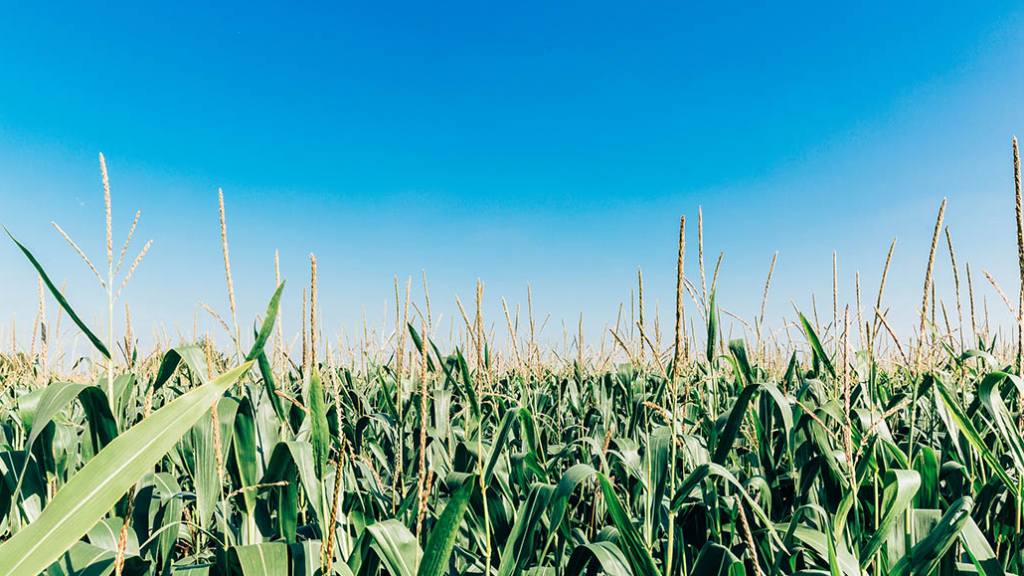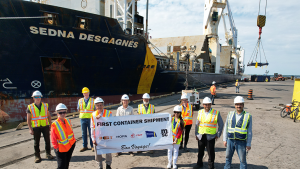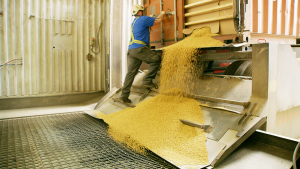Carbon offsets
ACHIEVING SUSTAINABILITY GOALS

AGRICULTURAL SUPPLY CHAINS are complex, and within the intricacies, certain risks can impact their future viability. Major negative catalysts that have evolved and driven the sustainability narrative over the last decade include child and forced labour within palm oil, the deforestation of the Amazon rainforest for soybean production, and ranching to name a few.
Most recently, it could be argued that the pandemic was and is the catalyst to further evolve sustainability goals. Regardless of this argument, over the last 18 months, we have witnessed an evolution in stronger sustainability commitments being made in the areas of climate change mitigation and greenhouse gas (GHG) emission reductions. This is not limited to governments ‘doubling down’ on climate change commitments but also within the private sector.
Droughts, floods, and other extreme weather events can all have an impact on supply chains and how they function. Within the agri-food sector, these disruptions can be catastrophic for companies sourcing commodities such as grains and oilseeds. As a result, emphasis on climate change risk mitigation is a large focus to ensure limited disruptions to supply chains. Beyond this risk mitigation, companies are also actively looking to reduce GHG emissions from their own business. This includes the GHG emissions from within their manufacturing and transportation, but also can consist of the raw materials and commodities they have purchased from farmers such as grains and oilseeds. This all ties into sustainability commitments that some of the world’s large multi-national corporations are making towards climate change goals and GHG emissions reductions.
Some of these commitments include:
General Mills: 2030 goal: Reduce absolute GHG emissions across our full value chain by 30 per cent.
PepsiCo: Goal is to achieve net-zero emissions by 2040
Bayer: Bayer Crop Science has established a target to be carbon neutral by 2030.
Maple Leaf Foods: The first major food company to go carbon neutral
HOW ARE COMPANIES ACHIEVING THESE TARGETS?
As companies are setting very ambitious targets to reach net-zero or carbon neutral there are several ways they are working to meet these goals. As mentioned, large multi-national companies are investing and advancing the way they can reduce GHG emissions through improving manufacturing processes or shifting to more fuel-efficient trucks in transportation and logistics to meet their commitments to net-zero or carbon neutrality. However, in some instances, these improvements may not be enough. As a result, companies are working to meet these goals through carbon offsets.
WHAT ARE CARBON OFFSETS?
A carbon offset is a reduction in GHG emissions that one company or party can sell to another company or party to compensate for their GHG emissions. If you have ever booked a flight online, you may have had the opportunity to purchase a carbon offset to offset the GHG emissions from the flight you took. This same concept holds on a larger scale for companies to reach net-zero or carbon neutral. Companies are purchasing carbon credits to compensate or to offset the GHG emissions they may be unable to reduce.
For example, earlier this year Microsoft purchased nearly 200,000 agricultural credits from Land O’Lakes to help meet their carbon goals. Maple Leaf Foods is also purchasing carbon credits to help offset emissions in becoming carbon neutral. Carbon offsets are usually measured in tonnes of CO2 equivalents and are bought and sold through private carbon trading platforms. Carbon credits have been in use for many years, however, recently the voluntary market for carbon credits has grown.
While opportunities through carbon offsets for agriculture may exist to help companies achieve climate change and GHG emission reductions goals, this is not fully operational or scaled in Canada. Farmers use a variety of best management practices, but current practices will not always be eligible to qualify as a carbon offset. There are many technicalities and nuances associated with carbon offsets from the farm level that need to be determined before they are a long-term, viable option for all farmers. Regardless of this, companies are committed to reaching net-zero or carbon neutral. Whether farmers are a part of this net-zero or carbon-neutral journey in Canada is still up for debate.
Michael Buttenham is the sustainability and environment lead for Grain Farmers of Ontario. •



























